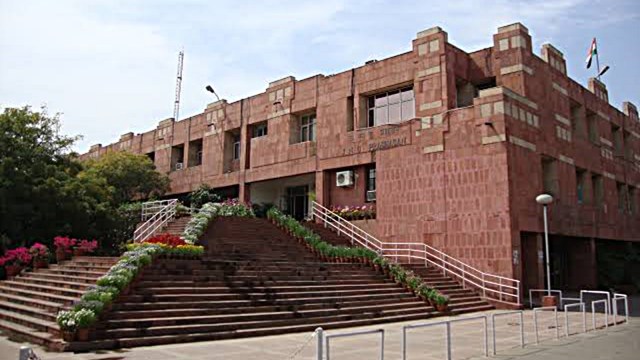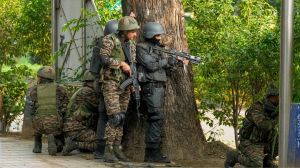JNU plans Shivaji centre: Lessons from his era on Akhand Bharat concept
The aim is to focus on Shivaji's “leadership, strategic, administrative and diplomatic attributes... which contributed to developing a new Bharat,” says the note.
 The case study on Manipur crisis is part of the optional courses in the third semester under the titles “Development, Peace and Security with Reference to North East India” and “Insurgency and Development”.(Express Archives)
The case study on Manipur crisis is part of the optional courses in the third semester under the titles “Development, Peace and Security with Reference to North East India” and “Insurgency and Development”.(Express Archives)The Jawaharlal Nehru University (JNU) is planning to start a ‘Centre of Excellence’ named after Chhatrapati Shivaji Maharaj, which will draw lessons from his era to understand the “concept of Akhand Bharat” and his “struggle for Hindavi Swaraj”, The Indian Express has learnt.
The Chhatrapati Shivaji Maharaj Centre for Security & Strategic Studies in the School of International Studies, which will be supported by the Maharashtra government, will focus on teaching Indian strategic thought, Maratha military history, Shivaji’s naval strategy and guerilla warfare among other subjects, according to the proposal reviewed by The Indian Express.
The centre is expected to offer diploma, undergraduate and postgraduate courses starting July 2025.
When contacted, Professor Amitabh Mattoo, Dean of School of International Studies at JNU, told The Indian Express: “The idea to start the centre originated from the Vice-Chancellor and some faculty members… The Maharashtra government too wanted to commemorate the thinking of Chhatrapati Shivaji Maharaj and his maritime strategies which are internationally recognised.”
Asked why Shivaji was chosen, Mattoo said: “The mandate of the school is to teach security and strategy. We teach about many Russian and Chinese thinkers, we also teach about Kautilya and Chanakya. We wanted to add Shivaji Maharaj and his well recognised strategic thinkings too, for the students to benefit.”
“The concept of Akhand Bharat, often misunderstood as an imperial expansionist role, refers to a united and undivided India, and the essential role it plays in influencing contemporary strategic decisions… It also emphasises the importance of unity, resilience and the people’s collective will in ensuring the nation’s security. In this light, learning from historical lessons of the Chhatrapati Shivaji Maharaj era becomes critical for understanding the past and building a robust and inclusive identity of modern India,” says the proposal note.
“… Chhatrapati Shivaji Maharaj’s struggle for Hindavi Swaraj, or self-rule, is a prime example of how India can shape its strategic culture. His approach to nation building was forward thinking and grounded in fairness, justice and sovereignty… By studying Shivaji Maharaj’s contributions, India can learn valuable leadership, diplomacy and strategic lessons,” it says.
The note says that Shivaji’s military innovations, such as “ganimi kawa (guerilla warfare) fortifications and naval expansions were far ahead of his contemporaries” and “institutionalising the study of these doctrines can provide contemporary military strategists with a wealth of knowledge that remains relevant in modern warfare”.
Six courses are proposed to be taught, including Maratha Grand Strategy: Relevance to Contemporary National Security; Strategic Approach to Asymmetrical Warfare; Guerilla Diplomacy, Statesmanship and Statecraft of Shivaji Maharaj and After.
The aim is to focus on Shivaji’s “leadership, strategic, administrative and diplomatic attributes… which contributed to developing a new Bharat,” says the note.
According to the proposal, the centre will have 14 positions for faculty and staff, including one professor, two associate professors and four assistant professors. The proposed infrastructure will include an administrative block, IT infrastructure lab, a library and reading hall; a “state-of -the-art museum” will also be developed.
The estimated total expenditure for the infrastructure (non-recurring expenditure) and salaries, remuneration, library, documentation etc (recurring expenditure) will be about Rs 35 crore and Rs 15 crore respectively, for the first five years.












